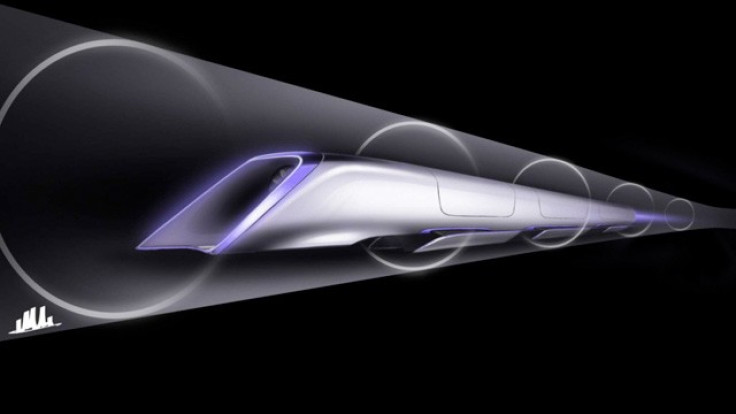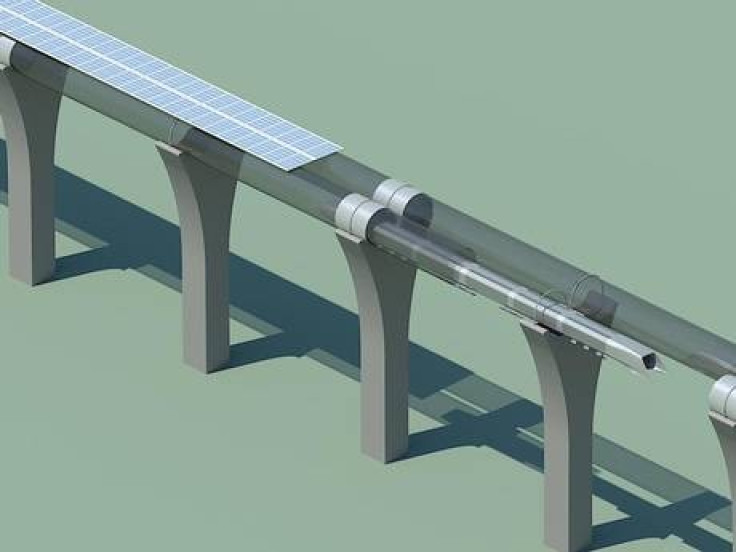Transport Expert Insists 'Don't Dismiss Wacky Hyperloop'
Elon Musk's 800mph Hyperloop train may sound like science fiction, but Professor Phil Blythe of the Institute of Engineering & Technology warns cynics not to dismiss the "wacky" idea.

In the days since Musk revealed his plans for Hyperloop, commentators have argued that it would accelerate too fast, generate too much heat, be too expensive, and be damaged by wind. But while it would be easy to dismiss the concept as pure fantasy, Professor Phil Blythe of Newcastle University warns the naysayers not to halt Musk in his tracks just yet.
"My gut feeling is, don't dismiss it out of hand just because it sounds a bit wacky," Blythe, who is chair of the Institute of Engineering & Technology's Transport Policy Panel, told IBTimes UK.
China
While Blythe questions the possibility of building a Hyperloop network in the UK, US or any other "heavily urbanised country", he believes China, central Europe and South America could adopt a system like Hyperloop as "a big, iconic engineering challenge...There's a big investment in China at the moment in high speed rail between their cities, and this could replace that."
Blythe added: "You're always going to have long distance travel, and if there was something that could replace air travel between cities and hubs, and is low carbon [with] low energy requirements, it make sense to explore it, it really does."
Musk's plans for Hyperloop describe a railway capable of carrying passengers from Los Angeles to San Francisco - a distance of 300 miles - in 30 minutes, and for a one-way cost of $20 (£13). Hyperloop uses electromagnets to accelerate through a tunnel, then uses fans to suck pods through a low-pressure environment, where air resistance is reduced and speeds far greater than conventional trains can be reached.

Blythe believes the long term success of Hyperloop will lie in its ability to be powered entirely by solar panels. "The compelling argument today is that the energy to run this could be generated from renewable resources, so the energy cost and the CO2 emissions are low - that probably gives it a bit more of an interesting argument whereas 15 years ago we didn't care about stuff like that.
"Technically, it'd be difficult but I'm pretty certain that people would find the engineering solutions to make it happen."
Agreeing with Musk, Blythe thinks Hyperloop makes most sense for "thousand-mile hops" rather than shorter journeys where a high speed could not be reached or long hauls, where planes remain the most efficient option.
Not in my yard
But cracking the engineering is only half the fight Musk and Hyperloop will face. The biggest drawback Blythe can see is the cost of land and complaints from residents nearby. "Everyone likes the idea of low carbon, high speed and innovative travel of any sort, but not in their backyard, as long as it's somewhere else and is someone else's problem."
Blythe adds: "Buying land and doing stuff like that is one of the most difficult things to do...and there's a massive cost associated with that. Just thinking about the miles upon miles of tunnel needed, whether it's above or below ground, there's a significant cost associated with that."
Compounding this, Hyperloop won't be appearing in the half-dozen years Musk expects, as Blythe thinks the project will be decades rather than years away - but still far from impossible.
"We're a very innovative race"
"He's come up with the conceptual design, he's put some detail into it and I certainly think there may be countries who think 'yeah let's take a look at that' and in another decade or so something might happen. But I wouldn't dismiss things out of hand, we're a very innovative race and we tend to find solutions to problems eventually.
"My gut feeling is...there's a lot of difficult problems associated with it, but if there's a will you tend to find a solution to many of those. If his cost estimates are right and it's significantly cheaper than high speed rail then I think it's exciting."
© Copyright IBTimes 2024. All rights reserved.






